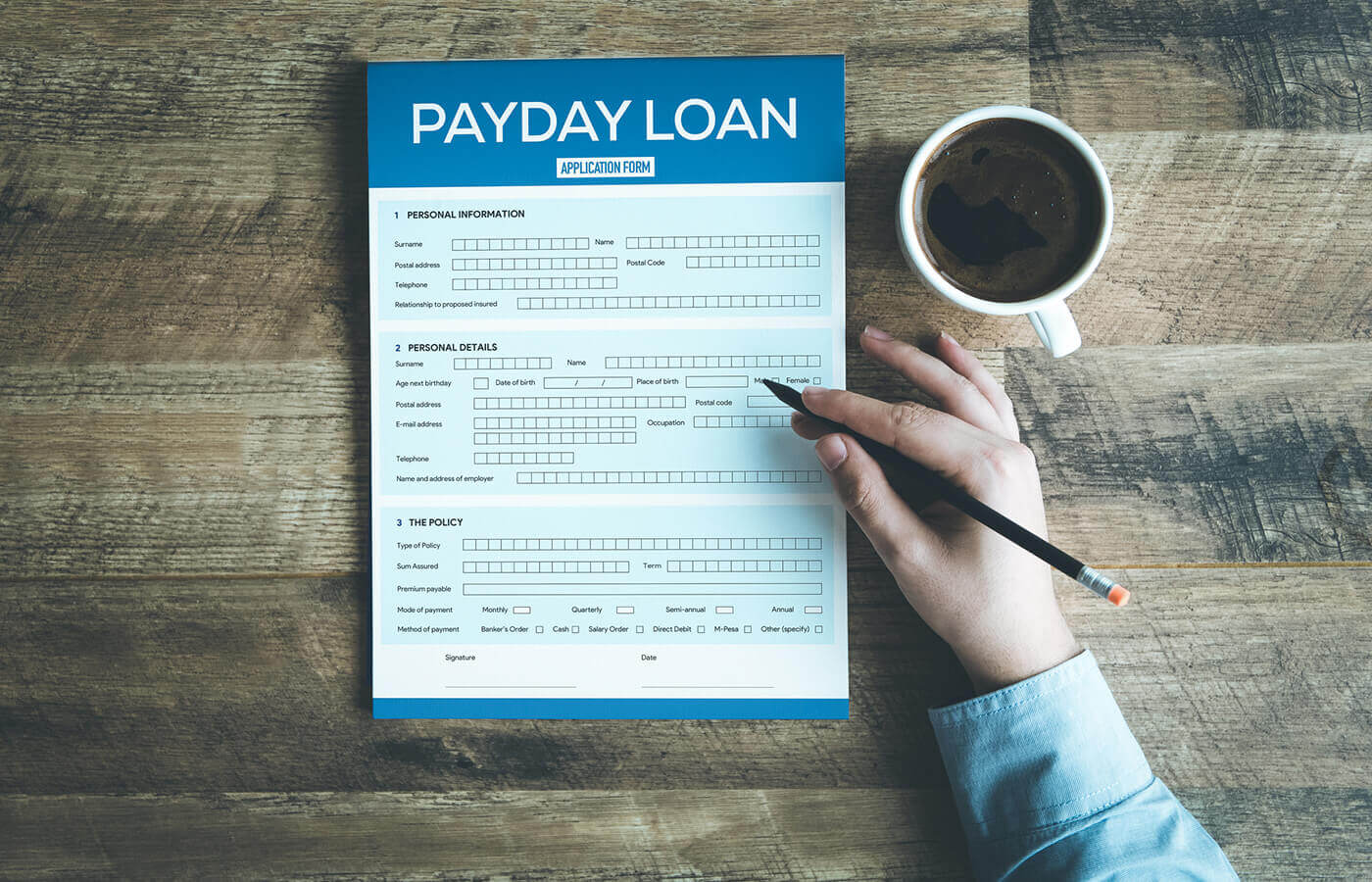Fast ways to access Fast Cash for emergency financial situations
A Comprehensive Guide to Home Loans: Solutions and Options Explained
Charting the globe of mortgage can be complex. Various options exist, each with distinct functions and implications for possible home owners. Recognizing the distinctions between government-backed and standard fundings is important. Moreover, the application procedure involves meticulous documents and pre-approval steps that numerous overlook. As borrowers begin on their home-buying trip, knowing exactly how to manage these obligations successfully can mean the distinction in between financial stability and challenge. What techniques can empower them on this path?
Comprehending Home Loans: Kinds and Terminology
Comprehending the numerous kinds of home mortgage and their associated terminology is vital for possible house owners, as it outfits them with the understanding needed to make informed monetary decisions. Home car loans can be extensively categorized right into fixed-rate and adjustable-rate home mortgages. Fixed-rate home mortgages keep a constant rates of interest over the life of the financing, giving security in regular monthly settlements. Payday Loans. Conversely, adjustable-rate home mortgages feature rate of interest that may rise and fall after a preliminary fixed duration, potentially resulting in lower preliminary repayments yet raised future costs
Extra terminology is very important for quality. Principal describes the loan amount obtained, while passion is the cost of borrowing that quantity. The term of the loan shows its duration, normally ranging from 15 to 30 years. Understanding these basic ideas allows possible buyers to navigate the complex landscape of home financing, guaranteeing they pick the right lending choice that lines up with their financial circumstance and long-lasting goals.
Standard Finances vs. Government-Backed Loans
A significant distinction in home funding exists between conventional loans and government-backed car loans, each satisfying various customer demands and scenarios. Conventional financings are not insured or guaranteed by the government and usually call for greater credit report and deposits. They are commonly interesting borrowers with secure monetary histories, as they may provide competitive rates of interest and terms.
In comparison, government-backed fundings, such as FHA, VA, and USDA financings, are designed to aid details groups of consumers, consisting of first-time buyers and experts. Fast Cash. These car loans typically feature reduced deposit demands and even more adaptable credit standards, making them available to a broader variety of people
Ultimately, the selection in between government-backed and standard lendings rests on the consumer's monetary situation, long-lasting goals, and qualification, making it crucial to very carefully assess both choices prior to making a choice.

The Role of Rates Of Interest in Home Funding
Rate of interest rates play an important role in home financing, influencing debtors' decisions in between variable and set price financings. The choice between these options can significantly affect monthly settlements, impacting overall affordability. Comprehending just how interest prices work is crucial for any individual steering with the home financing procedure.
Fixed vs. Variable Prices
Buyers face a crucial choice when picking in between repaired and variable rates, as this option substantially impacts the price of funding with time. Fixed-rate home mortgages provide security, securing a rates of interest for the life of the funding, which can be beneficial in a rising rate of interest atmosphere. This predictability permits home owners to spending plan better. Conversely, variable-rate home mortgages, or adjustable-rate home loans (ARMs), usually start with reduced preliminary prices that can change based on market problems. While this may lead to lower preliminary settlements, consumers face the threat of increased rates in the future. Ultimately, the option between fixed and variable rates depends on private economic situations, threat tolerance, and assumptions regarding future rates of interest fads.
Influence on Month-to-month Repayments
When evaluating home financing options, the impact of passion prices on monthly payments is a crucial aspect to consider. Rate of interest directly influence the general expense of borrowing, impacting exactly how a lot a borrower will certainly pay each month. A reduced rate of interest lead to smaller sized month-to-month repayments, making homeownership extra budget friendly. Conversely, greater prices can significantly increase monthly responsibilities, possibly straining a homeowner's budget plan. Furthermore, the finance term plays a vital function; longer terms may spread out settlements out however can bring about paying even more rate of interest in time. Recognizing just how rates of interest interact with finance amounts and terms is essential for debtors to make educated financial decisions and choose a home mortgage that lines up with their long-term monetary objectives.
Home Mortgage Brokers vs. Direct Lenders: Which Is Right for You?
When thinking about a mortgage, possible debtors must recognize the distinctive roles and duties of home loan brokers and direct lending institutions. Each alternative presents its very own benefits and negative aspects, which can substantially influence the general price of financing. An enlightened choice needs mindful analysis of these aspects to establish the finest fit for specific demands.
Obligations and roles Defined
Maneuvering the intricacies of home financing calls for a clear understanding of the roles and obligations of home mortgage brokers and direct loan providers. Home mortgage brokers serve as middlemans, connecting consumers with lenders. They examine a borrower's monetary circumstance, curate financing choices, and overview customers through the application process, usually leveraging multiple lending institution connections to safeguard favorable terms. Conversely, direct lenders, such as banks and cooperative credit union, offer financings directly to debtors. They take care of the entire car loan process, from application to financing, with an emphasis on their very own items. Each alternative provides distinctive avenues for obtaining funding, making it important for borrowers to review their needs and preferences when deciding between involving a home mortgage broker or functioning with a straight loan provider.
Disadvantages and pros Contrast
Picking between a mortgage broker and a straight lending institution can significantly affect the home financing experience, as each option offers unique advantages and drawbacks. Home mortgage brokers act as intermediaries, offering accessibility to several loan providers and potentially much better prices, while simplifying the finance procedure. They may charge fees and count on compensation frameworks that might influence their recommendations. On the other hand, straight loan providers simplify the procedure by using in-house lendings, which can bring about quicker authorizations and less difficulties. On the other hand, they may have a restricted selection of items and much less adaptability relating to pricing. Inevitably, the decision rests on specific preferences, financial situations, and the desired degree of assistance throughout the mortgage journey.
Price Implications Assessed
While examining the price ramifications of home mortgage brokers versus straight loan providers, possible homeowners should think about various elements that can greatly affect their general expenditures. Mortgage brokers normally bill fees for their solutions, which can vary substantially, influencing the general financing expense. They often have access to a larger array of lending products and competitive rates, possibly saving consumers cash in the long run. On the other hand, straight lenders might supply an extra straightforward process with possibly lower in advance prices, yet their funding options might be restricted. It is necessary for house owners to compare rates of interest, charges, and terms from both brokers and lending institutions, ensuring they make an educated decision that aligns with their financial objectives and demands.
The Mortgage Application Refine: What to Expect

The mortgage application procedure can frequently really feel frightening for several candidates. It typically begins with collecting essential documents, including proof of income, credit history, and personal identification. Lenders use this info to analyze the candidate's monetary stability and establish financing qualification.
Next, applicants submit a formal application, which might entail filling in on-line kinds or giving details face to face. During this phase, lending institutions evaluate various aspects, such as debt-to-income ratio and credit history, to pick financing terms.
As soon as pre-approved, the lending institution will carry out a thorough evaluation of the building to identify its value aligns with anonymous the car loan quantity. This phase may also consist of added history checks.

After final approvals and conditions are met, the lending is processed, resulting in the closing stage. Understanding each step empowers candidates, making the trip smoother and more manageable as they approach homeownership.
Tips for Managing Your Home Mortgage Sensibly
Effectively navigating the home car loan application process is simply the beginning of a responsible economic trip. Managing a home funding needs focus to numerous essential practices. First, debtors must establish a clear budget plan that fits monthly mortgage settlements, real estate tax, and insurance coverage. Frequently assessing this you can check here budget plan helps protect against overspending and assurances timely settlements.
Furthermore, making added payments when possible can considerably lower the lending principal and complete interest paid with time. Customers should additionally preserve open lines of interaction with their lender, specifically in times of financial difficulty. This can cause potential options such as lending adjustments or refinancing options.
It is suggested to monitor debt scores consistently. An excellent credit rating can provide chances for far better financing terms in the future. Fast Cash. By complying with these suggestions, property owners can browse their finance duties successfully, ensuring long-lasting monetary health and security
Frequently Asked Concerns
What Are Closing Expenses and Exactly How Are They Calculated?
Closing costs encompass fees related to completing a home mortgage, consisting of appraisal, title insurance, and finance source charges. These expenses typically range from 2% to 5% of the financing quantity, differing based on area and lender.
Can I Get a Home Mortgage With Bad Credit?
Yes, people with negative credit can get approved for a mortgage, though options may be limited. Lenders typically call for higher deposits or rate of interest, and discovering government-backed finances may boost possibilities of approval.
What Is Home mortgage Insurance coverage and When Is It Required?
Home mortgage insurance secures loan providers against default and is usually called for when a consumer makes a deposit of less than 20%. It assures that lenders recuperate losses if the debtor falls short to pay back the financing.
Just How Does Refinancing Job and When Should I Consider It?
Refinancing involves changing a present mortgage with a new one, commonly to secure a lower rate of interest price or adjustment car loan terms. Home owners ought to think about re-financing when rates of interest go down considerably or their monetary scenario boosts.
What Happens if I Miss a Home Mortgage Payment?
If a mortgage payment is missed out on, the lender usually assesses late charges, reports the misbehavior to debt bureaus, and may initiate foreclosure proceedings if repayments remain to be neglected, ultimately threatening the property owner's residential or commercial property.
Fixed-rate home loans keep a regular interest rate over the life of the lending, providing security in month-to-month payments. A considerable distinction in home financing exists between government-backed car loans and traditional fundings, each catering to various debtor requirements and scenarios. In contrast, government-backed lendings, such as FHA, VA, and USDA finances, are created to assist particular groups of debtors, including first-time property buyers and veterans. Interest prices play an essential role in home funding, influencing customers' decisions in between set and variable price fundings. Fixed-rate mortgages supply security, locking in a passion rate for the life of the lending, which can Learn More be useful in a climbing rate of interest rate setting.